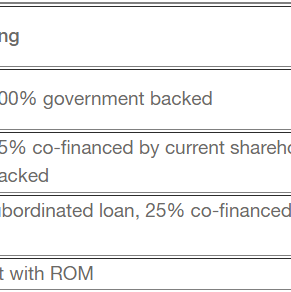We are very pleased to report that the Dutch government is lending a sympathetic ear. Please find below an overview of the measures that may be relevant to start-ups and scale-ups. We will continue to monitor this area and will update you on any new developments. Do not hesitate to reach out to us if you would like more information about these measures or if you require assistance with the application process or otherwise navigating the present crisis.
- Start-ups and scale-ups will be able to apply for a loan from Regional Development Companies (ROMs) as from the fourth week of April. The amount earmarked for this purpose is currently set at EUR 100 million. Loans will vary between EUR 50,000 and EUR 2 million. We will let you know when more information becomes available, but it is currently foreseen that the terms and conditions of the scheme will be announced the week of 13 April. For larger loans, the ROMs will work with InvestNL. We understand from the Dutch private equity and venture capital association that the current line of thinking is as follows:

InvestNL is also working on a European initiative with the EIB and private investors to support scale-ups. In addition, the European Commission and the European Investment Fund announced that they will make available up to EUR 300 million with the launch of ESCALAR (European Scale-Up Action for Risk Capital). The pilot phase will be launched this year.
- The new temporary Emergency Bridge Fund for Sustained Employment (Noodfonds Overbrugging Werkgelegenheid or NOW) can provide financial assistance to employers to help them pay their employees' wages through 31 May 2020. This measure will probably not be of much use to start-ups and scale-ups as it is necessary to demonstrate at least a 20% drop in turnover over a period of three consecutive months. Indeed, many start-ups (such as those in the biotech field) do not yet have significant turnover or are on a hypergrowth path as a result of which they will not have a 20% or more decrease in turnover compared to 2019.
- Entrepreneurs with a loan from microcredit provider Qredits do not have to repay their loan for a period of six months. During this time, the interest rate will be lowered to 2%. The government supports Qredits with EUR 6 million.
- Start-ups and scale-ups may wish to consider applying for a bridge loan. In this regard, the following assistance is available:
- The SME credit guarantee scheme (BMKB) will be extended to SMEs affected by the crisis in order to enable them to secure bank guarantees and bridge financing at an interest rate of 2%. The credit guarantee coverage has been increased from 50% to 75%.
- The business loan guarantee scheme (GO) for medium to large-sized businesses has also been extended. - A €4,000 compensation scheme (TOGS) is available to entrepreneurs in a number of sectors that have been affected by the coronavirus measures. Applications can be submitted to the Netherlands Enterprise Agency (in Dutch). To find out if your business is eligible for compensation, check the SBI code list (in Dutch). At the bottom of the page, there is a search tool (Zoektool SBI-codes) where you can enter your KVK number to obtain your SBI code.
- Businesses negatively impacted by COVID-19 can request an extension of the deadline for the payment of taxes of up to 3 months. The extension can be requested upon receipt of the tax return and becomes effective immediately after request. This arrangement will be in place until at least 19 June 2020, after which time the tax authorities will adopt new measures to provide relief to entrepreneurs.
- Businesses that benefit from the proof-of-concept funding scheme (VFF) or the innovation credit scheme (IK) can apply for a repayment extension of six months. In addition, no interest will be levied under the VFF.
- The government is currently developing an aid measure, which would consist of a reinsurance of short term credit insurances portfolios. The measure is aimed at companies that take out short term credit insurance with credit insurers active in the Netherlands to ensure that credit limits remain in place. The measure is also aimed at the customers of such companies and ensures that such customers can still purchase their supplies on credit. The reinsurance facility needs to be notified to the European Commission.


